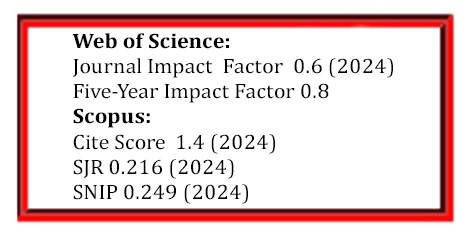Effect of MnO2 Dopant on Properties of Na+-β/β"-Al2O3 Solid Electrolyte Prepared by a Synthesizing-cum-sintering Process
DOI:
https://doi.org/10.5755/j02.ms.22612Keywords:
Na -β/β, solid electrolyte of NBBs, synthesizing-cum-sintering, duble-zeta process, MnO2 dopantAbstract
In order to simplify the complexity of the conventional solid-state reaction process, Na+-β/β″-Al2O3 as a fast Na+-ionic conductive solid electrolyte was fabricated using a synthesizing-cum-sintering process combined with the double-zeta method, which is able to distribute a small amount of Li2O more homogeneously in the Na2O-Al2O3-Li2O system. Additionally, in order to enhance the ionic conductivity, MnO2 was used as a dopant to increase the Na+-ion concentration on the conduction plane in the Na+-β/β″-Al2O3 crystal structure. The relative sintered density increased with the synthesis temperature, ultimately reaching 99.7 % after synthesis at 1400 °C. The phase formation showed an overall β″-phase fraction over 90 %. The addition of MnO2 had a positive effect on the phase formation, but a negative influence on the relative density resulting from the grain growth promotion effect. The highest ionic conductivity was observed at
1.74 × 10-1 S/cm (350 °C) for the sample sintered at 1600 °C with 0.5 wt.% MnO2.
Downloads
Published
Issue
Section
License
The copyrights for articles in this journal are retained by the author(s), with first publication rights granted to the journal. By virtue of their appearance in this open-access journal, articles are free to use with proper attribution in educational and other non-commercial settings.



